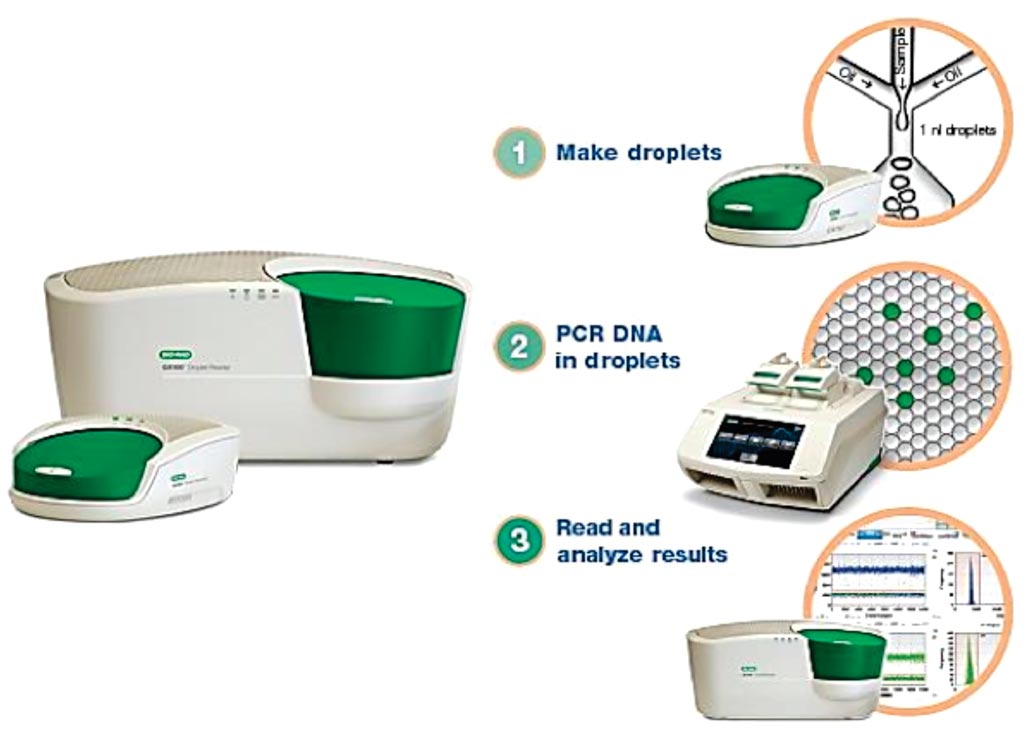Gene-Based Blood Tests Identify More Skin Cancers
By LabMedica International staff writers
Posted on 20 Apr 2017
Genetic testing of tumor and blood fluid samples from people with and without one of the most aggressive forms of skin cancer has shown that two new blood tests can reliably detect previously unidentifiable forms of the disease.Posted on 20 Apr 2017
New tests have been developed that monitor blood levels of DNA fragments, known as circulating tumor DNA (ctDNA), that are released into the blood when tumor cells die and break apart. Specifically, the test detects evidence of changes in the chemical building blocks (or mutations) of a gene that controls telomerase reverse transcriptase (TERT), a protein that helps cancer cells maintain the physical structure of their chromosomes.

Image: The droplet digital polymerase chain reaction system (Photo courtesy of Bio-Rad).
Scientists at the NYU Langone Medical Center checked results from the new tests against 10 tumor samples taken from NYU Langone patients diagnosed with and without metastatic melanoma plasma samples using novel mutation-specific droplet digital PCR assays. They also tested four blood plasma samples from NYU Langone patients with and without the disease. Blood test results matched correctly in all cases known to be either positive or negative for metastatic melanoma. Successful detection occurred, they say, for samples with as little as 1% of mutated ctDNA in a typical blood plasma sample of 5 mL.
The team detected changes that occur in mutant building blocks, in which a cytidine molecule in the on-off switch for the TERT gene is replaced by another building block, called thymidine. Either mutation, C228T or C250T, results in the switch being stuck in the "on" position, helping tumor cells to multiply. The new blood tests, which take only 48 hours, were developed in conjunction with Bio-Rad Laboratories. The new tools identify melanoma DNA in the blood of patients whose cancer is spreading and who lack defects in either the proto-oncogene B-Raf (BRAF) or neuroblastoma RAS viral oncogene (NRAS) which are already known to drive cancer growth.
David Polsky, MD, PhD, the senior study investigator and a dermatologist, said, “Our goal is to use these tests to make more informed treatment decisions and, specifically, to identify as early as possible when a treatment has stopped working, cancer growth has resumed, and the patient needs to switch therapy. The study was presented at the Annual meeting of the American Association for Cancer Research, on April 1-5, 2017, held in Washington, D.C., USA.














